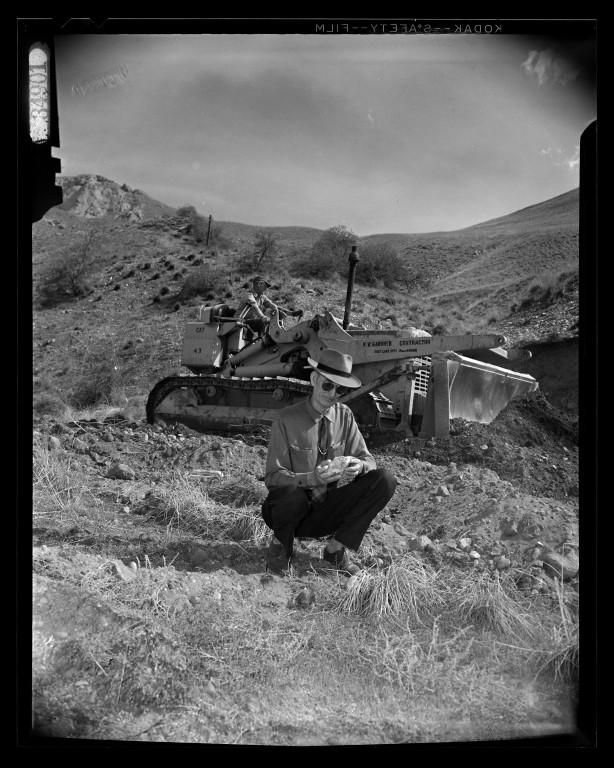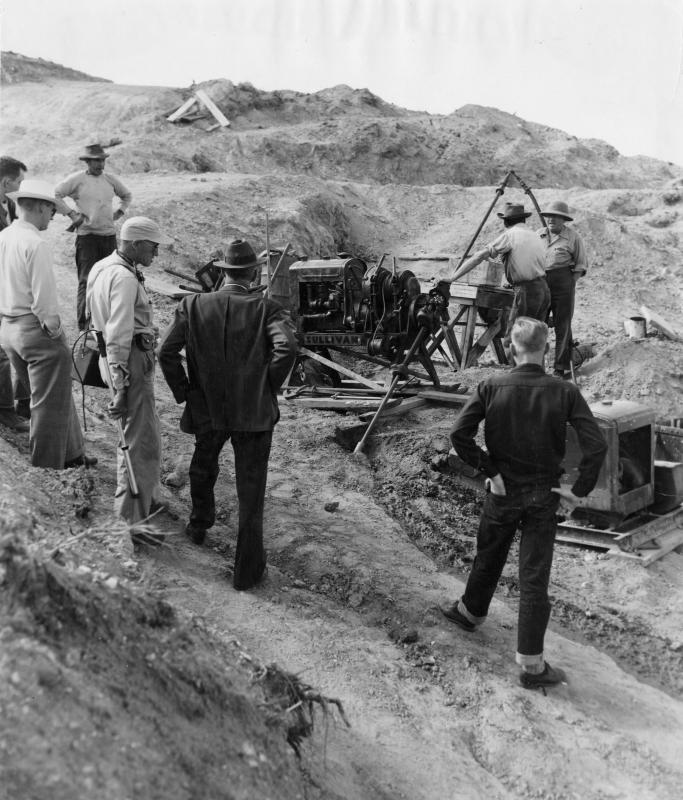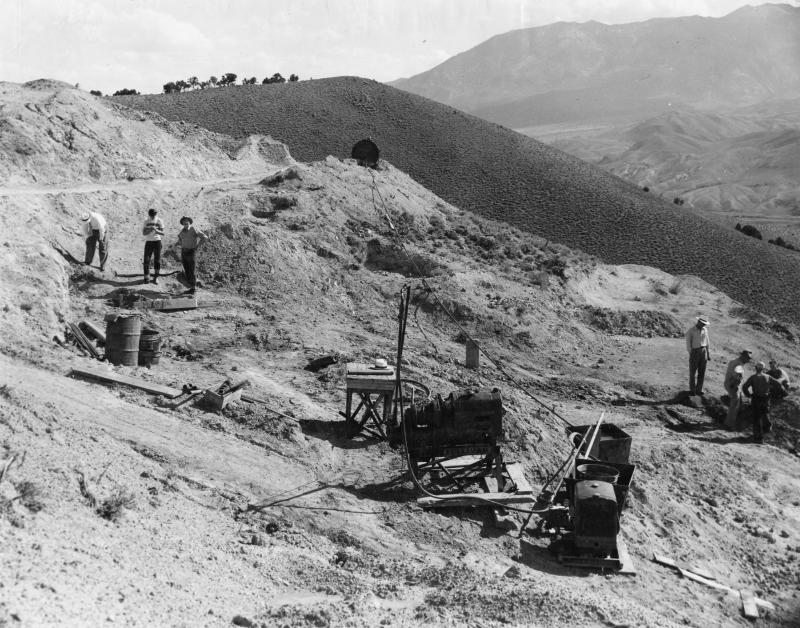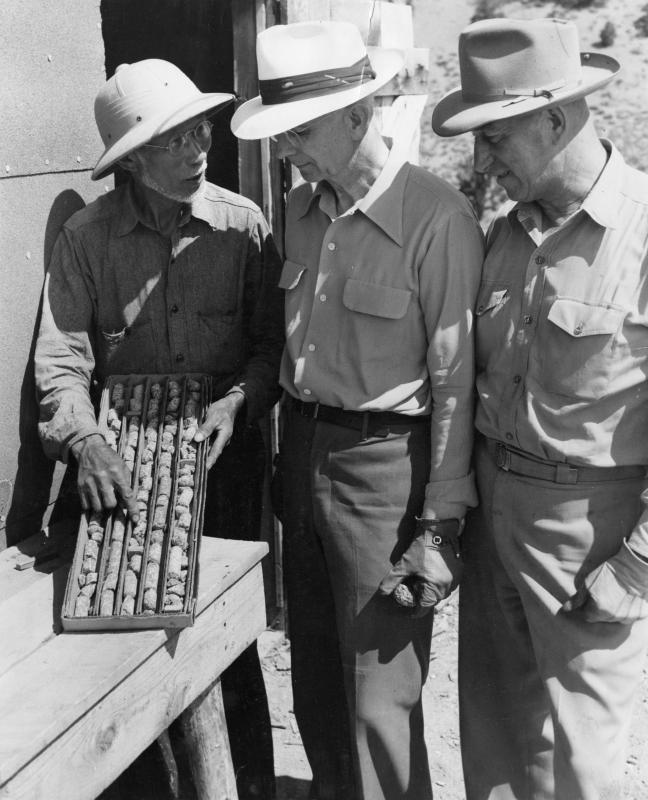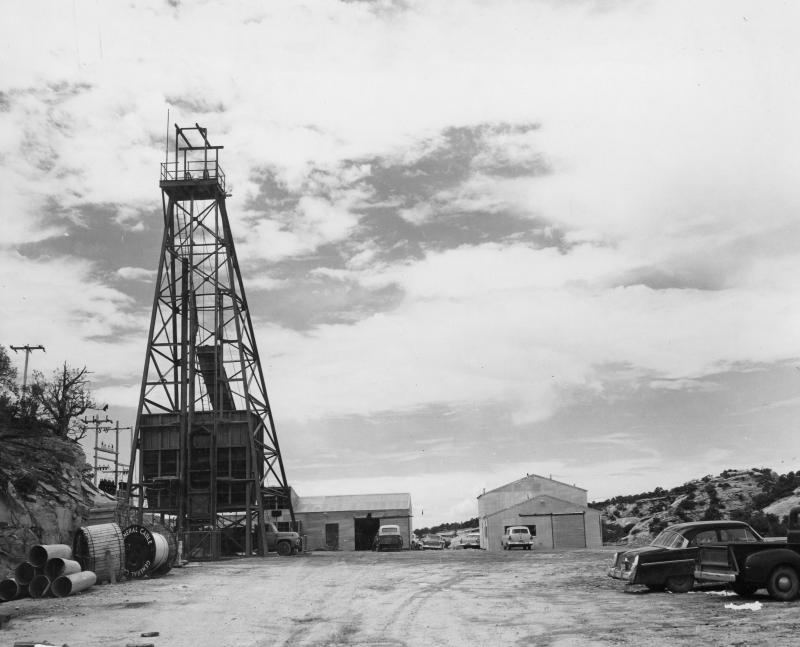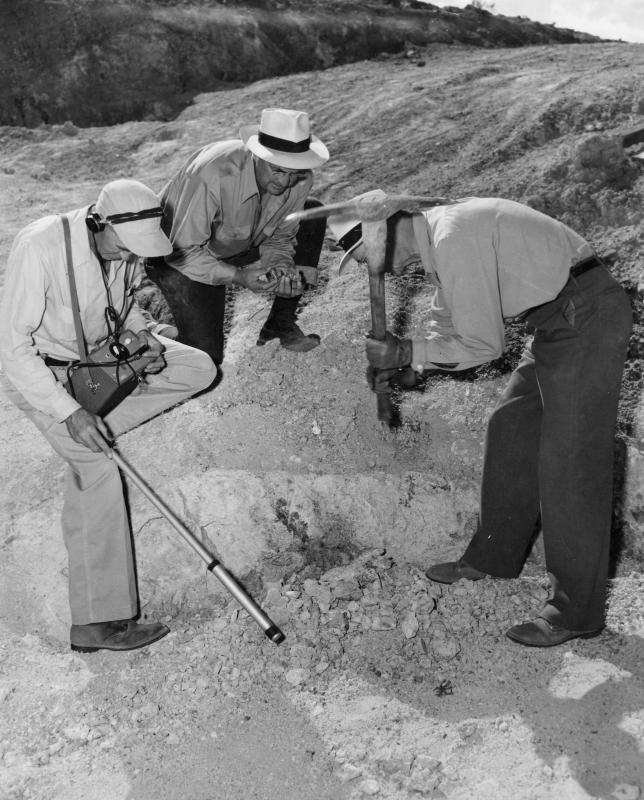Reward: Free Enterprise
“I think that’s why this nation is as great as it is. We’ve had laws that have made these resources available to all of the people—cheap law, cheap land, and ready access to it, so that any guy with a little initiative and courage could move to the frontier and carve himself an empire. Now the frontier is gone, and the slums and the other problems are coming in.”
“The incentive held out to mining locators to go out, self-initiate a right and to run the risk and also the opportunities of benefit was probably the greatest force that was mobilized in order to assure us of an adequate supply of fissionable source materials to support the Atomic Energy Program. The success of it, I believe, is self-evident. The land was being drilled by a multitude of people and tested by this multitude in a way that could never have been done by any organized and government-financed program.”
“In the new days we didn’t have to develop so much because we knew once we found maybe an ore penetration, other people would be glad to come in. There were more risk takers and more eager risk takers in 1953 than there were in 1951. So we utilized that fact. Saved the public’s money.”
“The minute we [the AEC] moved into an area that looked favorable to us, they [private industry] immediately stake it up and started drilling on their own. Of course, this is exactly what we wanted, because we wanted private investment, not government investment.”
The distrust of the federal government, specifically toward federal ownership of Western land, would come to a head in the Sagebrush Rebellion of the 1970s and 1980s.
“The government does nothing constructive. They administer only. They tear up and malign.”
The AEC maintained a set price for uranium through 1966. In 1967, the AEC began a “stretch-out” period to maintain production while the private nuclear energy industry developed. After the AEC stopped purchasing uranium in 1970, the price fell slightly until 1974, then began to increase through the end of the decade.
“I suppose maybe if the AEC would get out of it completely and let private industry take over, why I’m sure you would get a better buy.”
“I’m really anti-welfare as you can tell. I mean, it irks me really.”
“I know of some people that have got some good AEC leases over there [which have] made them very well-to-do. They drill out a big ore body and give it to you for ten percent royalty. How can you miss? They never did give us an AEC lease and we felt they always abused us in that direction.”
“What is needed here is industrialization, economic development to provide jobs for our Navajo people. I believe that with the orientation, with a concerted effort to find jobs for those who are willing and desirous of working, there are probably employment opportunities for them on the reservation.”
Ojibwe historian Jean O’Brien has critiqued a practice in settler-colonialism which she calls “firsting and lasting.” White settlers portray themselves as the first ones to establish a society in an inhabited area while portraying its indigenous inhabitants as the last of their people, doomed to be erased by modernity. Scholar Traci Brynne Voyles writes, “The complex relationships of the Diné [Navajo] to their environment are made invisible in settler discourses that construct this land as unqualified desert country or claim that it is ‘empty except for Indians.’”
“We have a little bit of Indian blood in us and maybe that’s helped us to survive in this rugged old country. It’s been said a lot of times—this is a rugged country and it takes a rugged people to come here and settle it. There was really nothing to come for when you stop to think about it except lots of Indians to fight and tough earth to conquer.”
“The independent mining man needs protection, and when you protect him, you are protecting America because he is the man who is developing the resources. We said that about 90 percent of all the discoveries are made by the little fellow… The man who is making a lot of people wealthy is that poor little prospector. I’m that kind of a guy.”
“The courts generally throughout the history of the mining laws tended to favor the little guy who’s in there first. And there are cases after cases of incomplete location and inadequate discovery where the little guy’s been protected. Intent of the law originally in the western United States was to encourage the man with the burro to go out and locate the minerals. The general laws still favor the little guy who comes in first even though he may not have perfected his title.”
“These prospectors, they went out and took chances. All they had to lose was their life or the lives of their families, their mothers or their sisters or their sweethearts or their wives or whatnot. The days of the type of prospectors and the small miners who developed the uranium industry are over. The big people did not develop it. Now, those days are over.”
“The independent miner is put under a lot of duress to keep his mine ventilated like they require. It’s getting a little bit ridiculous, too, when you have to air out the whole of the mine as good as what’s outside the mine. It costs quite a bit of money to do that… When [inspectors] come up to the mine, they have their regulations and they tell you what you should do, they never ask your opinion.”

This work is licensed under a Creative Commons Attribution-NonCommercial 4.0 International License.
All content © Nate Housley.

